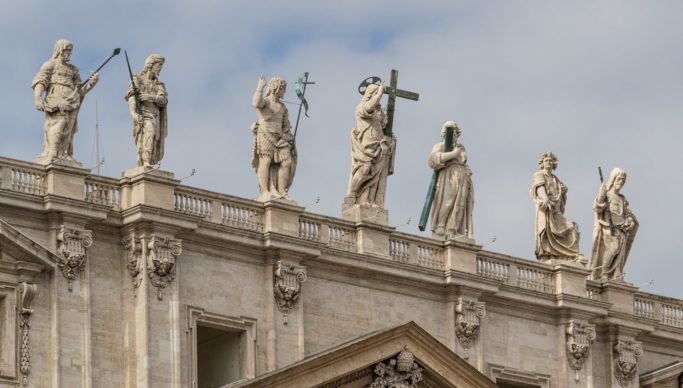
Vatican Summit Addresses the Question of Women’s Ordination in the Future of Catholicism
- By Alison Lesley --
- 25 Oct 2023 --
Conversations about the inclusion of women in the priesthood have gained momentum as the Synod on Synodality, Pope Francis’s month-long conference aimed at addressing critical church matters, nears its conclusion at the Vatican.
Despite a shared belief in the necessity of advancing women’s roles, however, participants at the closed-door event hold differing views on the means to accomplish one of the synod’s key objectives.
Pope Francis opened the conference for bishops as well as laypeople on October 4 in Rome, continuing a three-year process of dialogue and reflection among both clergy and laity in an attempt to tackle issues ranging from priestly celibacy and the inclusion of LGBTQ individuals to the ordination of women in the church.
The synod is a comprehensive endeavor scheduled to continue until October 2024, at which point attendees will gather once again at the Vatican for further talks and considerations.
In April 2023, as part of his continued efforts to advance greater inclusivity in the leadership of the Catholic Church, Pope Francis supported revisions to the synod’s regulations, emphasizing his commitment to enhanced inclusiveness, including the possibility of groundbreaking inclusion of women’s voting rights at the October synod.
As an October 23 Religion News Service(RNS) report from Vatican City stated, few subjects have garnered as much interest among attendees as that of women’s roles within the church.
Participants privy to the deliberations say the issue of women’s ordination is still a matter of relatively equal division—certain bishops are in opposition, while religious sisters take the forefront in advocating for it.
Meanwhile, the National Catholic Register, also reporting on the conference from Vatican City, said that the issue of women’s ordination in the Catholic Church featured prominently in a speech by an “unidentified laywoman” among a record 54 women voting at the historically male-dominated institution.
The speaker’s address highlighted the growing importance of conversations regarding the potential for women’s ordination. As such, the speech was a noteworthy step in light of the fact that the assembly’s organizers had made it clear beforehand that the Catholic Church had already established its unequivocal stance on the matter, emphasizing that the synod’s primary emphasis would not be on doctrine.
In fact, in his October 4 inauguration of the synod, the pontiff had indicated that the attention given to topics such as women’s ordination was primarily a product of media conjecture rather than a central concern for the gathering.
As RNS tells it, the pope established two commissions to explore the potential introduction of a female diaconate—a role that would enable women to proclaim the Gospel, deliver sermons during mass, officiate marriages and baptisms, but not administer the Eucharist or hear confessions.
Concern is mounting, however, that granting women entry into the diaconate could pave the way for the eventual ordination of women.


















